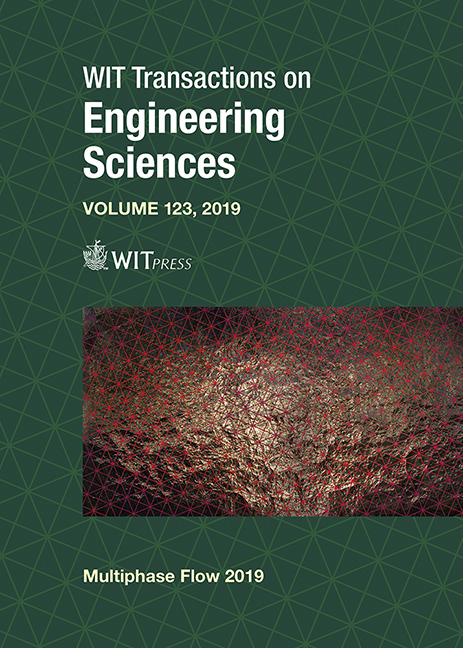COMPUTATIONAL INVESTIGATIONS OF POLYMER SHEET BREAKUP FOR OPTIMIZATION OF DEVOLATILIZATION PROCESSES IN STEAM CONTACTORS
Price
Free (open access)
Transaction
Volume
123
Pages
12
Page Range
113 - 124
Published
2019
Size
526 kb
Paper DOI
10.2495/MPF190111
Copyright
WIT Press
Author(s)
BRAD SHINDLE, ABHILASH J. CHANDY
Abstract
Polymer devolatilization is a vital process in polymer manufacturing and is significantly impactful on the successful creation of high quality polymers, meeting both rigorous product specifications and regulatory requirements. One of the devolatilization methods that is the focus of this research is steam stripping, where superheated steam is used to remove any unwanted substances, such as volatiles and solvents, from the polymer mixture. This polymer mixture, referred to as “cement” and comprised of polymer and a volatile cyclohexane solvent, mixes with superheated steam and undergoes breakup into smaller droplets followed by phase change resulting in the removal of cyclohexane. The objective of the current study is embodied in two steps. The first step involves the development of a computational fluid dynamics (CFD)-based multiphase model that solves for the initial breakup of the liquid polymer mixture by steam. As part of this effort, detailed parametric studies are conducted to determine the effects of different contactor geometries on the initial sheet breakup, and the potential impact on the final polymer product quality. The second step then uses the resulting diameter distribution to model the multiphase heat and mass transfer of the polymer mixture including evaporation. Specifically, 3D CFD calculations are carried out using a Eulerian–Lagrangian approach, where the superheated steam is modelled as the continuous phase and tracked in a Eulerian frame, while the cement droplets are treated using a Lagrangian tracking method, thereby providing distributions of particle sizes, temperatures, and solvent content in the contactor. Results helped optimize the devolatilization process in terms of steam savings and volatile content in the final polymer.
Keywords
polymer devolatilization, CFD, multiphase





